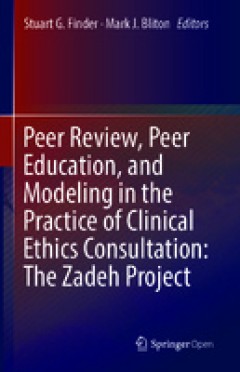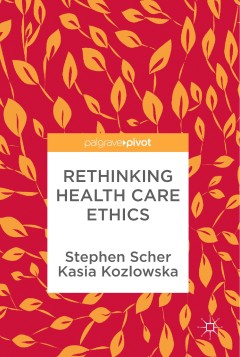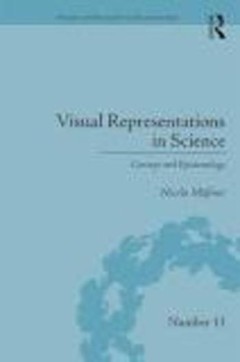Filter by
# Debug Box
/var/www/htdocs/pustaka-digital/lib/SearchEngine/SearchBiblioEngine.php:688 "Search Engine Debug 🔎 🪲"
Engine Type ⚙️: "SLiMS\SearchEngine\SearchBiblioEngine"
SQL ⚙️: array:2 [ "count" => "select count(sb.biblio_id) from search_biblio as sb where sb.opac_hide=0 and (sb.call_number LIKE :callnumber)" "query" => "select sb.biblio_id, sb.title, sb.author, sb.topic, sb.image, sb.isbn_issn, sb.publisher, sb.publish_place, sb.publish_year, sb.labels, sb.input_date, sb.edition, sb.collation, sb.series_title, sb.call_number from search_biblio as sb where sb.opac_hide=0 and (sb.call_number LIKE :callnumber) order by sb.last_update desc limit 10 offset 130" ]
Bind Value ⚒️: array:1 [ ":callnumber" => "1%" ]

Disasters : core concepts and ethical theories
This Open Access Book is the first to examine disasters from a multidisciplinary perspective. Justification of actions in the face of disasters requires recourse both to conceptual analysis and ethical traditions. Part 1 of the book contains chapters on how disasters are conceptualized in different academic disciplines relevant to disasters. Part 2 has chapters on how ethical issues that arise …
- Edition
- -
- ISBN/ISSN
- 9783319927220
- Collation
- ix, 244p. : ill.
- Series Title
- -
- Call Number
- 170 DIS d

Peer review, peer education, and modeling in the practice of clinical ethics …
This open access book about the Zadeh Project demonstrates and explores a core question in clinical ethics: how can ethics consultants be accountable in the face of a robust plurality of ethical standpoints, especially those that underwrite practices and methods for doing ethics consultation as well as those viewpoints and values encountered in daily clinical ethics practice? Underscoring this …
- Edition
- -
- ISBN/ISSN
- 9783319909554
- Collation
- viii, 228p.
- Series Title
- -
- Call Number
- 174.2

Word knowledge and word usage
Word storage and processing define a multi-factorial domain of scientific inquiry whose thorough investigation goes well beyond the boundaries of traditional disciplinary taxonomies, to require synergic integration of a wide range of methods, techniques and empirical and experimental findings. The present book intends to approach a few central issues concerning the organization, structure and f…
- Edition
- -
- ISBN/ISSN
- 9783110440577
- Collation
- IX< 717 p.
- Series Title
- -
- Call Number
- 121 WOR w

Ethics dumping : case studies from north-south research collaborations
This book provides original, up-to-date case studies of “ethics dumping” that were largely facilitated by loopholes in the ethics governance of low and middle-income countries. It is instructive even to experienced researchers since it provides a voice to vulnerable populations from the forementioned countries. Ensuring the ethical conduct of North-South collaborations in research is a proc…
- Edition
- -
- ISBN/ISSN
- 9783319647319
- Collation
- xiii, 134p. : ill.
- Series Title
- -
- Call Number
- 174.9 ETH e

Rethinking health care ethics
The goal of this open access book is to develop an approach to clinical health care ethics that is more accessible to, and usable by, health professionals than the now-dominant approaches that focus, for example, on the application of ethical principles. The book elaborates the view that health professionals have the emotional and intellectual resources to discuss and address ethical issues …
- Edition
- -
- ISBN/ISSN
- 9789811308307
- Collation
- xv, 169p. : ill.
- Series Title
- -
- Call Number
- 171.7 SCH r

Thick evaluation
"We use evaluative terms and concepts every day. We call actions right and wrong, teachers wise and ignorant, and pictures elegant and grotesque. Philosophers place evaluative concepts into two camps. Thin concepts, such as goodness and badness, and rightness and wrongness have evaluative content, but they supposedly have no or hardly any nonevaluative, descriptive content: they supposedly give…
- Edition
- First edition.
- ISBN/ISSN
- 9780198803430
- Collation
- xi, 198 pages ; 24 cm
- Series Title
- -
- Call Number
- 170.42 KIR t

Brief interventions for psychosis
This book offers a clinical guide that brings together a broad range of brief interventions and their applications in treating psychosis. It describes two core approaches that can narrow the current, substantial gap between the need for psychotherapeutic interventions for all individuals suffering from psychosis, and the limited mental health resources available. The first approach involves …
- Edition
- -
- ISBN/ISSN
- 9783319305196
- Collation
- 13 p.; 22 cm
- Series Title
- -
- Call Number
- 150 BRI b

ethics of vaccination
This open access book discusses individual, collective, and institutional responsibilities with regard to vaccination from the perspective of philosophy and public health ethics. It addresses the issue of what it means for a collective to be morally responsible for the realisation of herd immunity and what the implications of collective responsibility are for individual and institutional respon…
- Edition
- 1st edition.
- ISBN/ISSN
- 9783030020675
- Collation
- pages cm
- Series Title
- -
- Call Number
- 174.295372 GIU t

The ethics of medical data donation
This open access book presents an ethical approach to utilizing personal medical data. It features essays that combine academic argument with practical application of ethical principles. The contributors are experts in ethics and law. They address the challenges in the re-use of medical data of the deceased on a voluntary basis. This pioneering study looks at the many factors involved when indi…
- Edition
- -
- ISBN/ISSN
- 9783030043636
- Collation
- x, 198p. : ill.
- Series Title
- -
- Call Number
- 174.29069 ETH e

Visual representations in science : concept and epistemology
Visual representations (photographs, diagrams, etc.) play crucial roles in scientific processes. They help, for example, to communicate research results and hypotheses to scientific peers as well as to the lay audience. In genuine research activities they are used as evidence or as surrogates for research objects which are otherwise cognitively inaccessible. Despite their important functional r…
- Edition
- -
- ISBN/ISSN
- 9781138089938
- Collation
- 372 p.; 22 cm.
- Series Title
- -
- Call Number
- 121 MOB v
 Computer Science, Information & General Works
Computer Science, Information & General Works  Philosophy & Psychology
Philosophy & Psychology  Religion
Religion  Social Sciences
Social Sciences  Language
Language  Pure Science
Pure Science  Applied Sciences
Applied Sciences  Art & Recreation
Art & Recreation  Literature
Literature  History & Geography
History & Geography